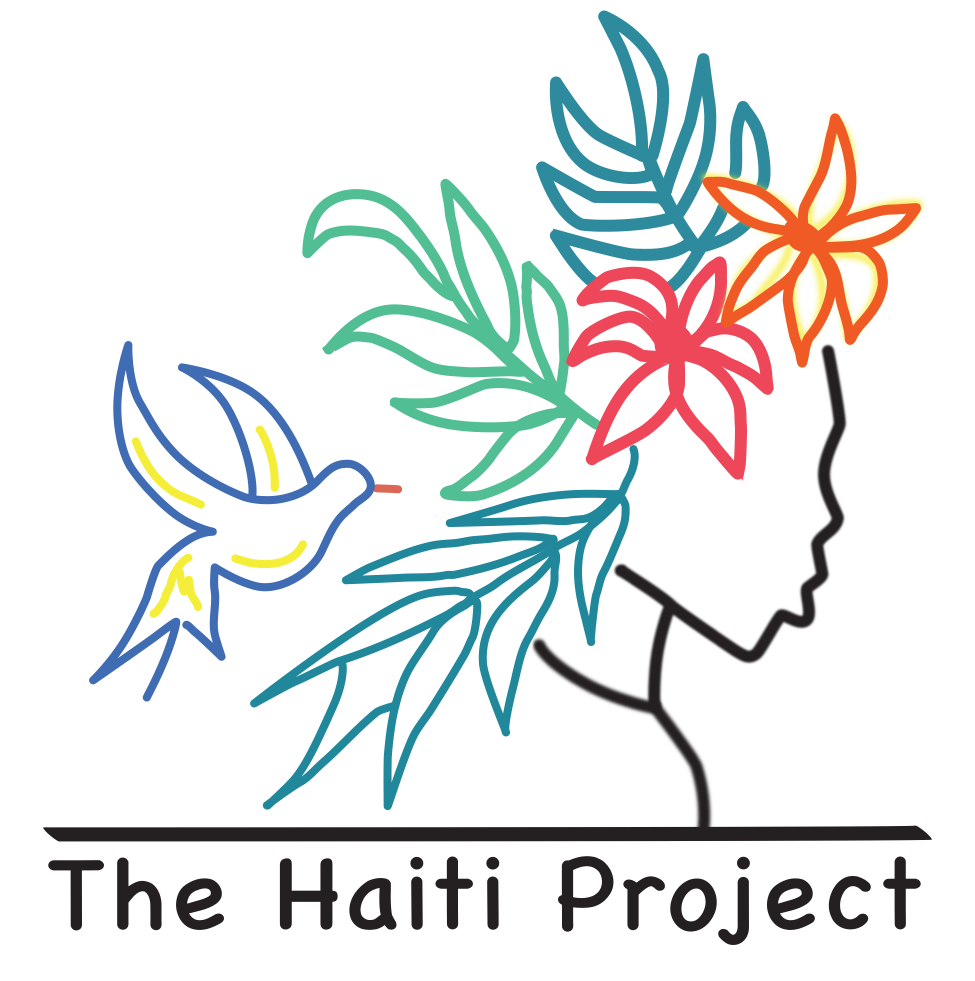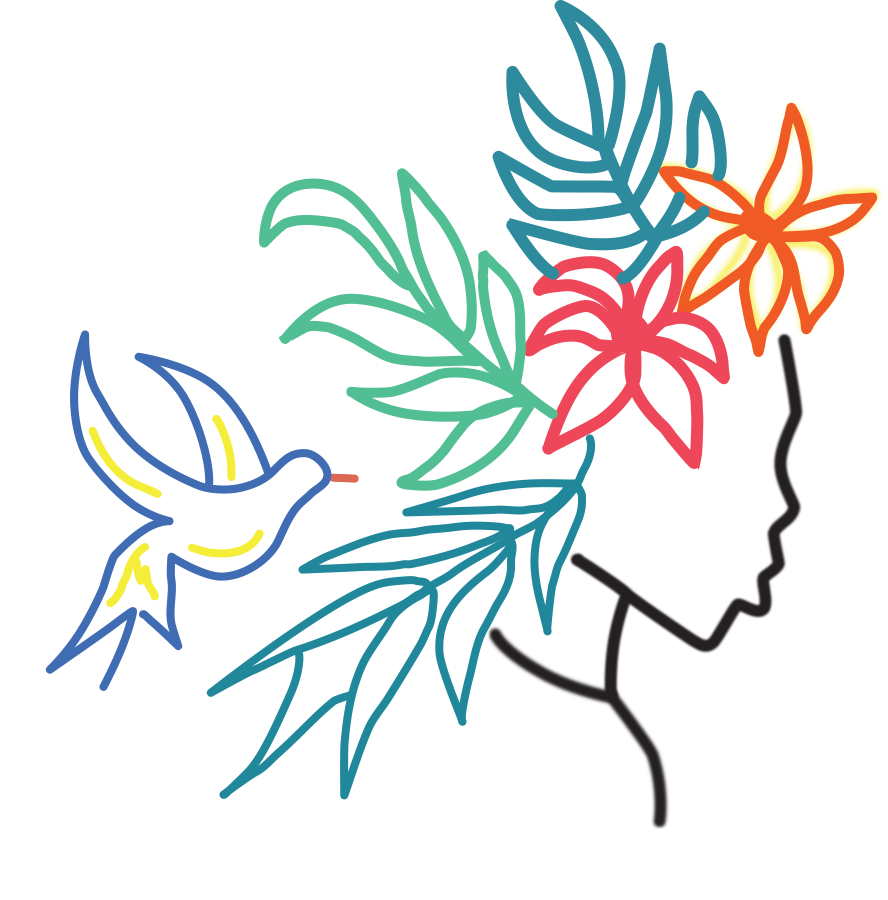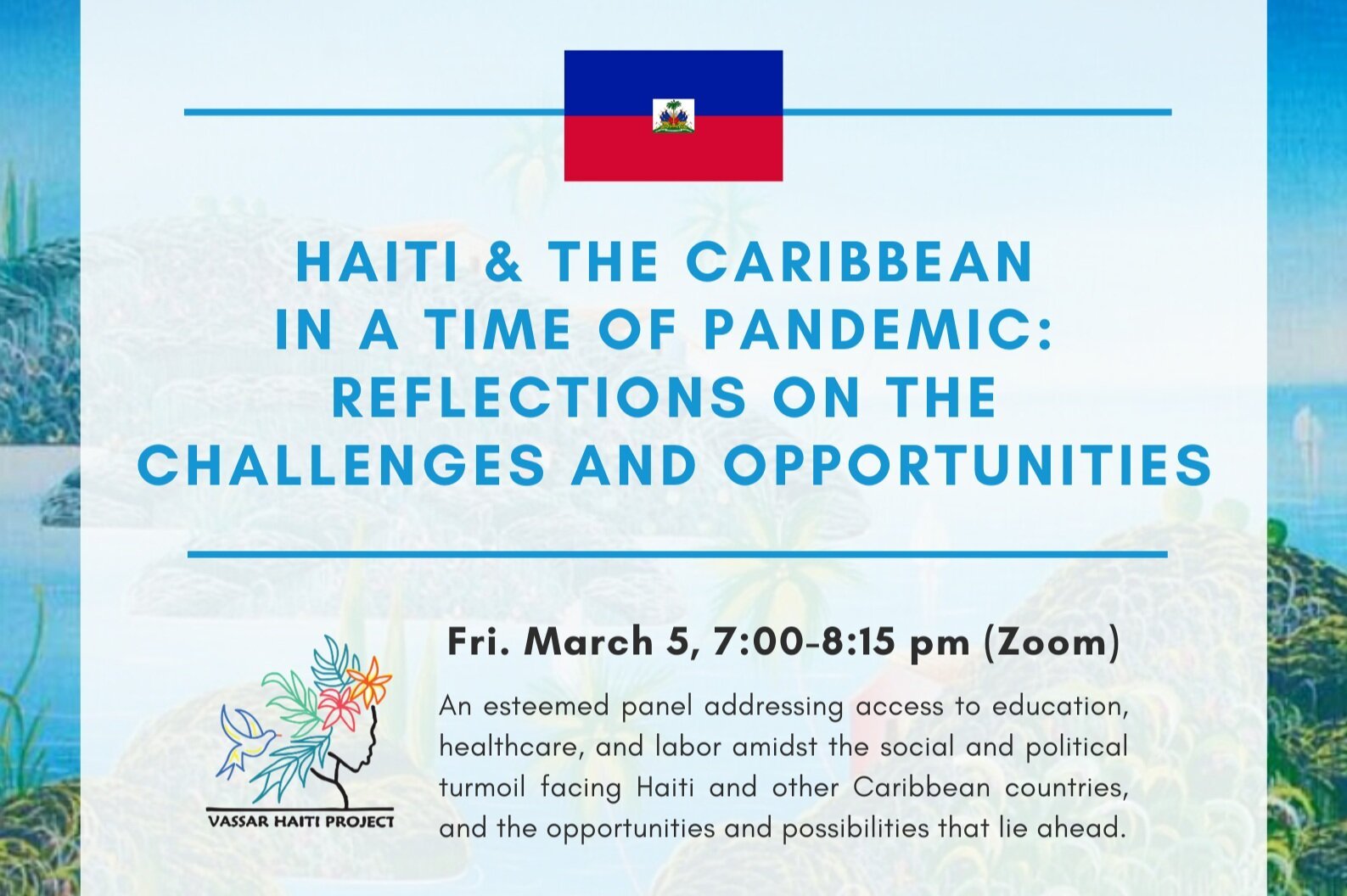Haiti and the Caribbean in a time of Pandemic: Reflections on the Challenges and Opportunities
Thank you for attending the event and for supporting the Vassar Haiti Project! We hope you enjoyed the panel discussion.
If you missed it, don’t worry! Watch the recording here:
Panelists
Carole Berotte Joseph, Ph.D.
CUNY University Professor Emeritus and past President of the Bronx Community College and Massachusetts Bay Community College
Carole M. Berotte Joseph was born in Haiti and grew up in New York City. She is fluent in four languages: Haitian Creole, Spanish, English, and French. She was the first person of Haitian descent to become a college president in the US. She received a B.A. in Spanish with minors in French and Education from York College/CUNY, M.A. in Curriculum & Teaching in Bilingual Education from Fordham University, and Ph.D. in Sociolinguistics and Bilingual Education from New York University. An expert in the field of bilingual/multicultural education, Berotte Joseph is a socio-linguist who has authored, edited and translated books, articles and reports on education, immigration and language policy issues facing Haitian communities in the US and in Haiti.
During her 45 year career in education, Berotte Joseph held several leadership positions in both the US and abroad. She served as the Deputy Chief of Party for the nonprofit FHI 360’s project, Let's Learn to Read and Write (Ann ALE), in Haiti, and was responsible for the launch and implementation of this major literacy and teacher development project in partnership with the Haitian Ministry of Education. In the US, her career in higher education began at the City College of New York/CUNY in Bilingual Teacher Education, where she served as School of Education faculty at both the graduate and undergraduate levels for over 20 years. She later served as Chief Academic Officer and Dean of Academic Affairs at Dutchess Community College/SUNY and Vice President of Academic Affairs at Eugenio María de Hostos Community College/CUNY.
She obtained federal funds to establish the first Haitian Bilingual Parent & Teacher Training program (Project HAPTT) in the US and served as the Principal Investigator and first Director of the statewide HABETAC, the Haitian Bilingual/ESL Technical Assistance Center in New York, currently housed at NYU. She conceptualized and implemented the first Dreamer’s program within CUNY, at the Bronx Community College, having advocated with the national team that worked with the Obama administration to support higher education for undocumented students.
Mamyrah Dougé-Prosper, Ph.D.
Visiting Assistant Professor of Africana Studies at Davidson College
Mamyrah Dougé-Prosper was born and raised in Port-au-Prince, Haiti, and emigrated to suburban New Jersey at 15 to complete high school. She is a Visiting Assistant Professor of Africana Studies at Davidson College. She received her B.A. in Political Science and Africana Studies from Barnard College, M.S. in Conflict Analysis and Resolution from Nova Southeastern University, and Ph.D. in Global & Sociocultural Studies with certificates in African and African Diaspora Studies and Women's and Gender Studies from Florida International University. Her areas of expertise include social movements, Caribbean studies, solidarity economies, black feminism, and (post)colonialism, and her research focuses on social movements in Haiti after the fall of the Duvalier dictatorship.
Dougé-Prosper is currently working on a monograph entitled Development Contested in Occupied Haiti: Social Movements, NGOs, and the Evangelicized State and has published in academic and political journals like Women’s Studies Quarterly and Commune Magazine. She is presently the Coordinator for the Pan-African Solidarity Network with Community Movement Builders.
Ismail Rashid, Ph.D.
Professor of History at Vassar College
Ismail Rashid grew up in Freetown, Sierra Leone and has been teaching at Vassar College since 1998. He received his B.A. Hons in Classics and History from the University of Ghana, M.A. in Race Relations from Wilfrid Laurier University, Waterloo, Canada, and Ph.D. in African History from McGill University. His primary teaching interests are pre-colonial and modern African history, African Diaspora and Pan-Africanism, and International Relations. His research interests include subaltern resistance against colonialism, public health, and conflicts and security in contemporary Africa.
Some of his publications include West Africa’s Security Challenges (2004, with Adekeye Adebajo), The Paradox of History and Memory in Postcolonial Sierra Leone (2013, with Sylvia Ojukutu-Macauley) and Understanding West Africa’s Ebola Epidemic: Towards a Political Economy (2017) and Researching Peacebuilding in Africa: Theory, Fieldwork, and Context (2020, with Amy Niang). He has also published several articles and book chapters.
Rashid also mentors graduate African students and rising faculty colleagues in various African universities through his voluntary service as an Adjunct faculty for African Leadership Center of King’s College London and the University of Nairobi. He has served as Chair of the Advisory Board of the African Peacebuilding Network of Social Science Research Council (APN-SSRC); Vice President of the West African Research Association (WARA); and a co-editor of Afrika Zamani, the journal of African History, produced by the Council for Social Science Research in Africa (CODESRIA) based in Dakar, Senegal.
Kimberly Williams Brown, Ph.D.
Professor of Education at Vassar College
Kimberly Williams Brown was born in the central Parish of Manchester in Jamaica. She went to local schools through high school and migrated to the US to attend college. For the first time after migrating, she was confronted with her race as a social reality that structured her experiences in rural West Virginia. Her work now is in the service of making sense of these experiences, dispelling the myths that some Black people are inherently better than others (eg. the belief that Caribbean Black people are more industrious than lazy African American Blacks) and engaging Caribbean Black people on the legacies of racial resistance in the US that has a rich Caribbean presence and influence.
Williams Brown is an Assistant Professor of Education and steering committee member for Africana Studies at Vassar College. She is also a member of the Forced Migration Steering Committee and the Women’s Studies program. She holds a Ph.D. from Syracuse University in Cultural Foundations of Education, B.A. in Sociology and Psychology from Concord University, M.A. in Human Resource Management (University of Charleston) and Communication and Rhetorical Studies (Syracuse University), and certificates in Women and Gender Studies (Syracuse University) and Professionals in Human Resources.
Her scholarly areas of focus include immigration/migration studies, women’s and gender studies, Black Caribbean studies, and intergroup dialogue. Specifically, her research and writings have focused on critical feminist studies particularly in decolonial feminist theories, Black feminist theories, transnational feminist theories, Indigenous feminisms, and Caribbean feminist theories; critical race theory; Indigeneity, Blackness, and critical methodological inquiry. A forthcoming manuscript will pull much of her writings and intellectual interests together in a project tentatively titled Afro-Caribbean Women Teachers: Race, Transnational Labor and Decolonial Diasporic Resistance.
Prior to transitioning to her Ph.D. program, she spent eight years in higher education administration in both residence life and multicultural affairs developing selection, training, and mentoring programs for students and professional staff members. She was a POSSE mentor for Students from Atlanta, GA. She is the co-founder of the Intergroup Dialogue Collective at Vassar College and teaches an anti-racist class to teachers in the Poughkeepsie and Arlington School Districts







